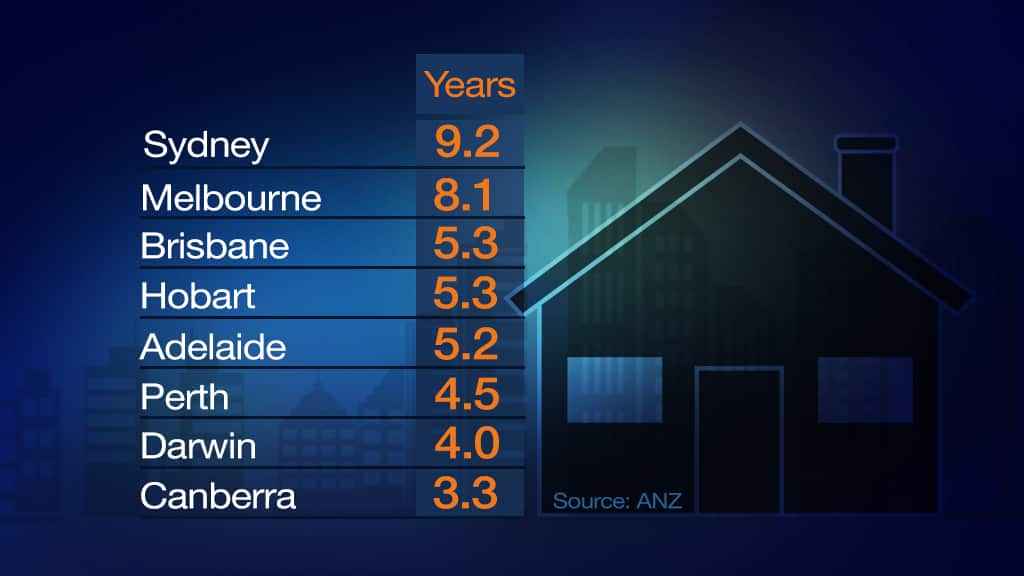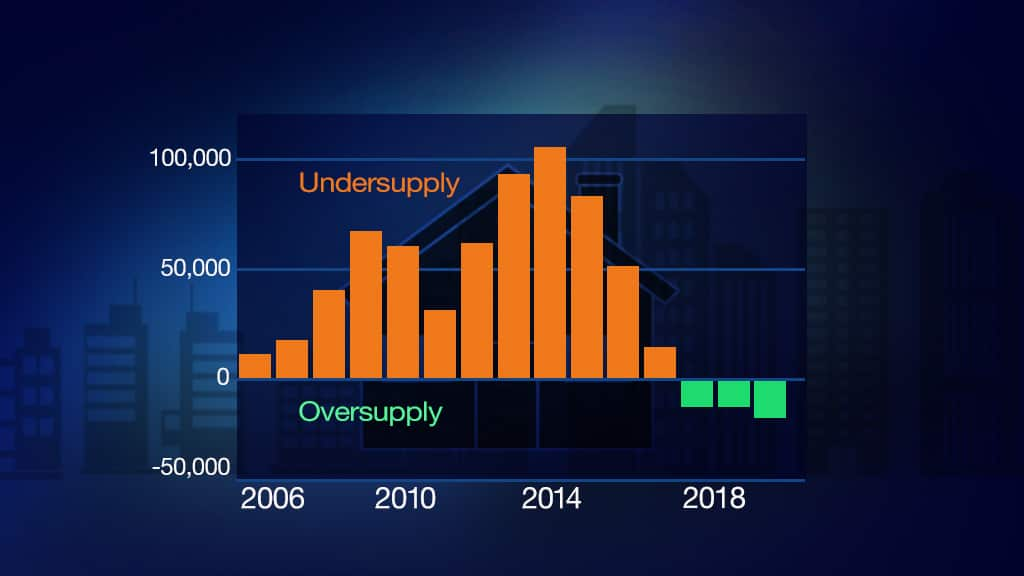Saving for a deposit is just the start of the battle for first home buyers.
Assuming a savings rate of 15 per cent of household income, ANZ calculates that it takes Sydneysiders more than nine years to save for a 20 per cent deposit.
Canberra is the most affordable of the Australian capital cities. ANZ Senior Economist David Cannington says things aren't going to get easier.
ANZ Senior Economist David Cannington says things aren't going to get easier.

Source: ANZ/SBS
"Over the next year or two it will continue to remain difficult and it could become more difficult. That's based on some fairly soft labour market conditions and that flowing through to weak income growth."
As a result, it's likely paying for homes will get harder.
BIS Shrapnel Head of Building Forecasts Kim Hawtrey says houses and apartments are being built at a rapid rate and are continuing to rise in value.
"We're right at the peak of the building cycle in Australia in terms of residential building at least - we're at an all time record. We estimate there were 210,000 dwellings [built] in the latest financial year. The previous record was back in 1994 and that was 187,000 dwellings."
Low interest rates sparked a rush of construction, which will start to ease from this year.
"We don't see that as having a dramatic effect on prices. There may be a small correction in prices, but not a crash. We see prices easing or levelling off after the big increases we've seen over the last couple of years," Kim Hawtrey said.
A small oversupply may be evident by 2018, he added. "We think the next financial year we'll see a plateau, not a decline, and then we'll start to see a gentle easing after that. Most of the falls will be in places like Victoria and Western Australia. New South Wales will continue to have a lot of momentum for a few years to come."
"We think the next financial year we'll see a plateau, not a decline, and then we'll start to see a gentle easing after that. Most of the falls will be in places like Victoria and Western Australia. New South Wales will continue to have a lot of momentum for a few years to come."

Source: BIS Shrapnel/SBS
David Cannington says that may provide opportunities at the low end of the market because most of the dwellings that are being built are multi-storey units.
"Which will make home deposit affordability for apartments a lot better compared to coming up with a deposit for a detached house."
While official interest rates are expected to remain on hold for some time, borrowers may be hit.
The banking regulator, the Australian Prudential Regulation Authority (APRA) told Australia's big banks to carry more capital against mortgages.
In simple terms, it wants ANZ, the Commonwealth Bank, NAB, Westpac and Macquarie to keep more cash in reserve, just in case the housing market stalls and loans can't be paid.
As a result, CMC Markets Analyst Ric Spooner says borrowers could be hit.
"The chances are, I think, that the bank will pass these costs onto borrowers because it is after all the wider economy that is getting the benefits of these, rather than the bank's shareholders themselves."
That may mean higher mortgage rates as supply hits the market.
"Whether or not they are able to do so, will have a lot to do with the competitive environment and how much competition they face from other lenders," Ric Spooner added.
It's part of a global push to make sure banks around the world are well funded to avoid another global financial crisis.
Share

